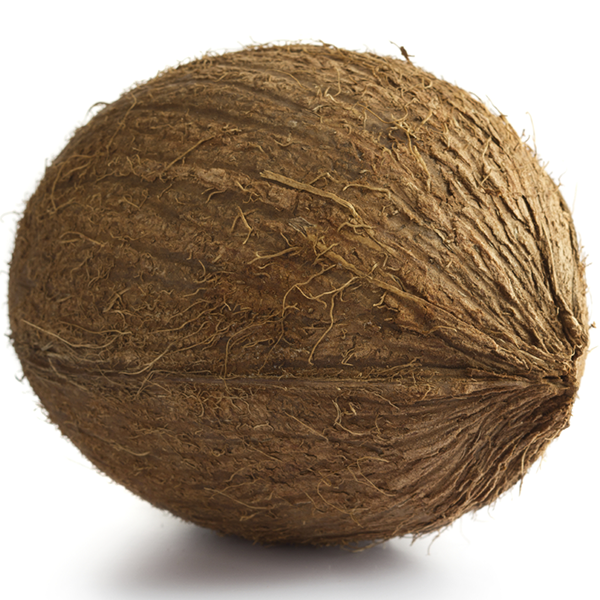
Organic coconut makes up a tiny percentage of total organic sales, and less than 1% within the coconut category. However, sales are growing. If you have a lot of success with organic items in your store, organic coconut is worth considering as it will round out baking ingredients for organically minded consumers. Average prices for organic are about twice that of conventional coconut.
Cross-promote fresh organic coconut with organic coconut oil and organic coconut milk. Other great tie-ins are organic baking items, organic bagged salads and organic pie ingredients.
Include organic coconuts in tropical promotions. Promote it heavily around the winter holidays as coconut is popular in many baked goods at that time of year. Market organic coconut to parents as a nutritious snack for back-to-school lunch boxes. Target environmentally conscious consumers by promoting the growing practices used to grow organic coconut.
Use sampling to show consumers how to crack a coconut and dig out the meat as well as give consumers a taste of organic coconut.
Consider creating an organic tropical display. Include bananas, coconuts, pineapples and mangoes. This puts all organic tropicals in a one-stop shop and creates a colorful, attractive display in your department. Use organic coconuts as a color break between the more colorful bananas and mangoes.
Coconuts look sturdier than they are. Avoid stacking coconuts as the weight from the top coconuts can cause the bottom layer to crack.
Include preparation tips on your display, especially information on how to make shredded and toasted coconut. Add organic coconut oil and coconut flour to your display to encourage consumers to purchase organic coconut in all its forms. While fresh, shredded organic coconut may draw consumers, avoid shredding it in-store unless your store is a certified organic processing facility.
Shipping
Organic coconuts are most often shipped in 24-count cartons.
Grades
The U.S. has no grade standards.
Puerto Rico Grades (for dry husked coconuts)
P.R. No. 1
P.R. No. 2
Handling
Temperature: 32 to 35 F, 0 to 2 C
Relative humidity: 75% or less
Typical shelf life: 1 to 2 months
Mist: no
Coconuts do not need to be misted, although some retailers do so to prevent cracking and drying. Whether effective or not, water will not hurt coconuts, which are one of the most waterproof fruits.
At room temperature, coconuts can be held for two weeks without serious loss of quality.
Extreme temperatures should be avoided. Cracks can occur when there is a sudden 15 F temperature change.